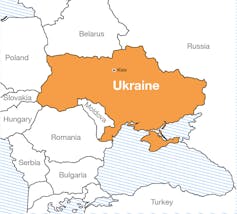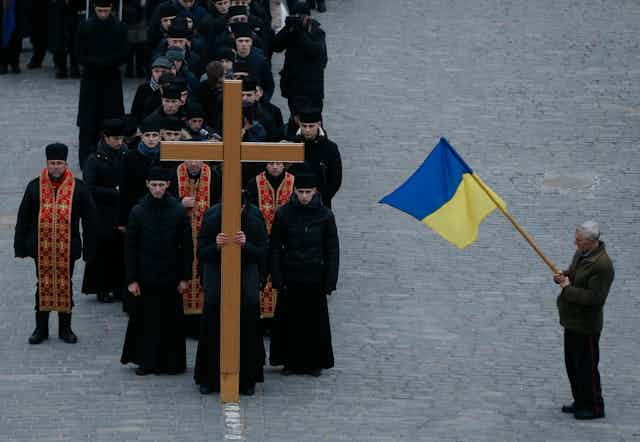
The emergence of a democratic and independent Ukraine is transforming the geo-strategic landscape of Central Europe.
In the past three years, the 2013/2014 Euromaidan protests, the annexation of Crimea and the war in East Ukraine have reshaped the geopolitical map of Europe and derailed cooperation between Russia and the West.
In the years leading to the Euromaidan protests, the directionless political drift and pervasive corruption inspired not only the movement for democratisation in Ukraine, but also the ambition to join the European Union and solidify ties with the West.
Following the Euromaidan protests, the sharp departure from Russia’s sphere of influence caused social cleavages, particularly in the Ukrainian cross-border territories, and the rise of extremism on both sides.
Ukraine is now in sharp economic and industrial decline. It is battling a massive decline in population (due to a mass exodus for economic reasons and an increase in death rates caused by war) and ecological catastrophe in the self-proclaimed independent republics of Donetsk and Luhansk. The prospect of joining the EU as a full member is now very distant.
As a result, Ukraine, a young democracy in the heart of Europe, is grappling with an almost impossible set of tasks. It must prevent its economy from collapsing, reform its state and secure international support to defend its territory.
Despite these challenges, Ukraine may be nearer to the democratic pole than other regimes in the post-Soviet region. This offers us an insight into how a young democracy with turbulent internal dynamics can develop and strengthen in a hostile geopolitical environment.
Political scholars, observers and international leaders from around the world recognise the global importance of Ukraine’s crisis. It has impacts on European security policy, US strategy, efforts to calm the Syrian war and China’s foreign policy, as well as broader democratic developments in post-Soviet Eastern Europe.

